Within the huge amount of people who were persecuted during the years of the conflict, it is worthwhile to focus our attention on certain characters linked to Burgos, who stood out from all the others because of their relevance in certain fields such as politics, literature, the army and music.
Antonio José Martínez Palacios
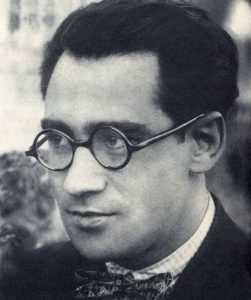
He was a musician from Burgos and the composer of ‘Sinfonía Castellana’, ‘Colección de cantos populares burgaleses’ or ‘Himno de castilla’. He was arrested on 6 August 1936 by a group of phalangists and transferred to the prison. From prison he wrote to his friend Matías Martínez Burgos, a local scholar and influential person. However, intercessions on his behalf were unsuccessful, and on 8 October he was “released” with 23 other detainees. They were taken to Mount Estépar, where they were shot and buried in a mass grave.
Belzunegui, a musician from the cathedral, who was very familiar with the work of the distinguished Antonio José, pointed out that:
“Perhaps his attitude towards simple people and not wanting to stand out, which was reflected, for example, in not leading with a Levite but with a simple jacket, were earning him enmity and envy that ended in his tragic death. His execution was a mistake, like so many others at the time.
Luis García y García Lozano y Tomás Alonso de Armiño
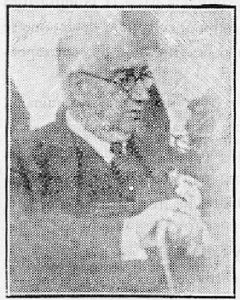
Luis García y García Lozano, mayor of Burgos, and Tomás Alonso de Armiño, director of the Secondary School, were the subject of a complaint and were suspected of joining the rebellion. Both were remanded in custody in the Central Prison on 9 December 1936. Almost all those required to declare agreed that García Lozano had never looked sympathetically at the different political parties that made up the so-called Popular Front. In the case of Alonso de Armiño, representative of the intelligentsia of Burgos, nothing can be proven against him either. Both were eventually acquitted but sentenced to a fine of 5000,000 pesetas and released on 9 January 1937.
Manuel Machado
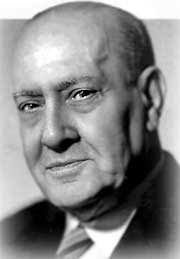
Writer and poet, brother of the poet Antonio Machado, he entered prison on September 29, 1936. He was in Burgos with his wife to spend the 16th of July, the feast of Our Lady of Mount Carmel. They travelled from Madrid to Burgos on the 15th, with the intention of returning on the 18th. However, the couple missed their return train and were surprised by the military rebellion in Burgos. Days later, he was arrested, accused of being “cold and pessimistic with the National Uprising” and imprisoned until early October, when he was acquitted of the charges and released.
The General Batet
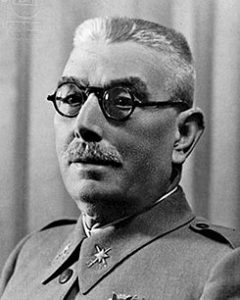
General Domingo Batet Mestres actively participated as an officer in the Cuban war. Back in the Peninsula, he had to face the anarchist uprising of the Alto Llobregat in January 1932 and the Catalan independence movement on October 6, 1934, the outcome of which brought him the award of the Grand Cross of San Fernando and his transfer to the head of the President of the Republic’s Military Chamber. He was assigned to Burgos on 14 June, 1936 to quell the uprising of General González de Lara, head of the main Burgos force. However, the arrest of General González de Lara did not prevent the Burgos garrison from revolting and Batet was arrested and detained in prison on 26 July at the age of 64. On January 8, 1937, he was tried and sentenced to death for treason and rebellion. He was taken to the Vista Alegre camp, next to the Santander road, to be executed.
Carrasco Formiguera
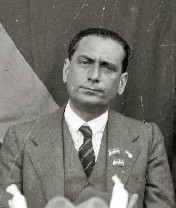
He was a political figure of great importance. Because of his adherence to Catholicism, he left Acció Catalana as this formation had accepted the lay articles of the Republican Constitution of the Republic. Also from the republican side, he took steps to save the lives of several ecclesiastics during the Civil War.
During the Civil War, the Generalitat sent him to Bilbao to establish a delegation similar to the one that had in Barcelona. The trip was made through France at the end of 1936 and in 1937 he returned to Barcelona. In Perpignan he was reunited with his family and they left Bayonne to Bilbao on March 5, 1937. The steamship “Galdamanes” in which they were travelling was captured by the nationalist cruiser “Canarias”, at Cape Machichaco. He was transferred to Burgos prison, where he entered on 9 March. The efforts of the Republican side to save his life did not prevent him from being shot in April 1938.
Luis Labín Besuita
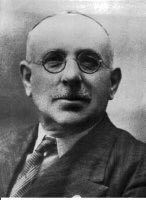
President of the PSOE in Burgos, he was a councillor since the formation of the first Republican municipal team, which was constituted on 10 June, 1931. He was also the founder of the grouping of the Workers’ Societies of the U.G.T. and president of the Popular Athenaeum of Burgos.
The war surprised him in Madrid, where he lived for some time. Once the conflict ended, he voluntarily surrendered to the new authorities who sentenced him in a court martial in Madrid to the sentence of thirty years, for the crime of adhering to the rebellion. Later, he was banished to Logroño to serve his conditional release, until he was pardoned for good.